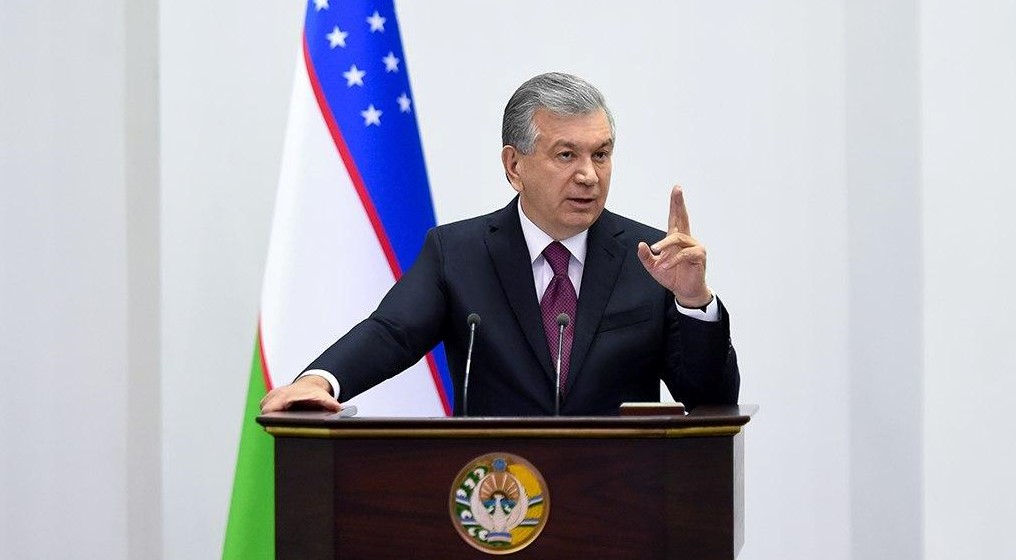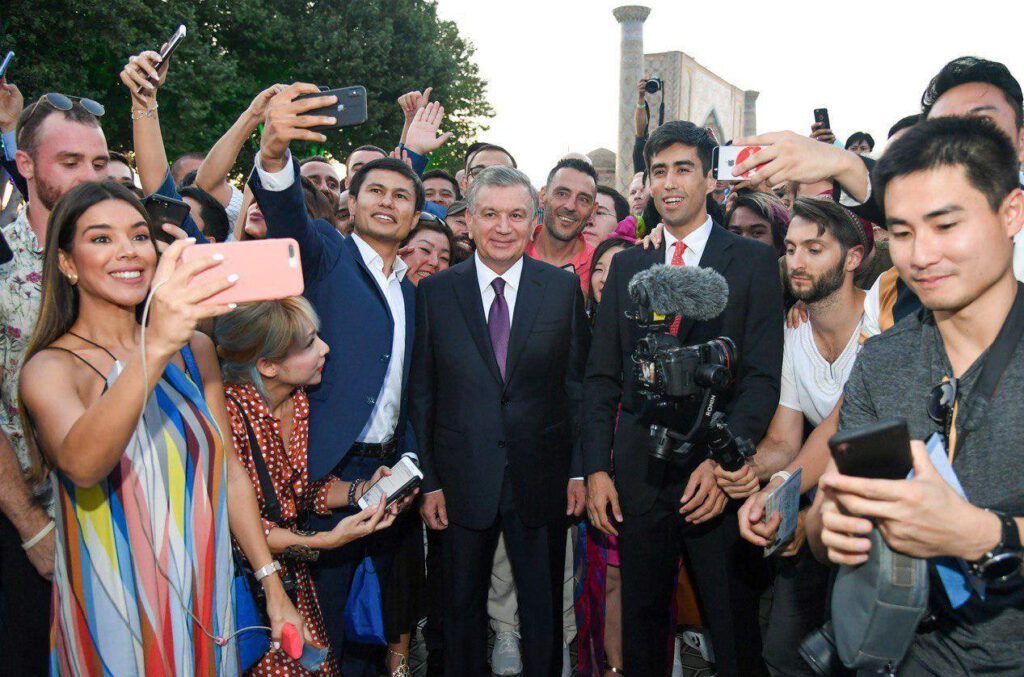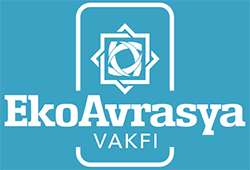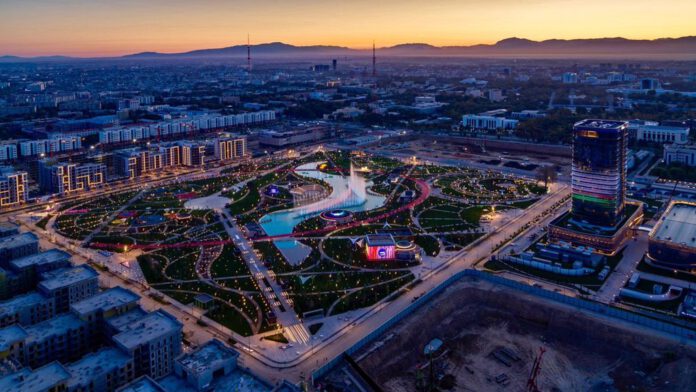Kemal Kurnaz
Vice Chairman of the Management Boardof EkoEurasia
The reforms initiated in Uzbekistan in the second half of 2016 have placed mobilization of the civil society potential for development on the agenda as one of the pressing issues and a pillar of any large-scale reform programmes. There is no doubt that without the full support and engagement of citizens in the reforms, it is impossible to speak of a fundamental transformation of the entire system of the functioning of the state.
It is vital to keep in mind that the mobilization of civil society capacities is a complicated process that requires not only the establishment of multi-level mobilization systems, but also the mechanisms of their connectivity, coupled with proactive and responsive measures within an explicitly defined long-term policy framework.
Over the past four years, much has been done in Uzbekistan to step-up civic engagement in the socio-political, economic and cultural life of the country, but it remains important from a strategic perspective to maintain the dynamics. This will require a comprehensive analysis not only of achievements, but also of the issues revealed, and the emerging challenges.
The first question that immediately arises in this context is ‘How efficiently the capacities of social mobilization, which were available at the time of the launch of the reforms, have been tapped? From a human resource perspective, it is clear that in some areas that require a high level of classification and knowledge, the potential for mobilization has reached its limit.
For instance, speaking at the joint session of the Chambers of the Oliy Majlis on 21 January 2020, President Shavkat Mirzieyev raised the problem of shortage of staff in the geology, and in the fuel and energy sector. He said “Unfortunately, we have no staff, no human reserve, which is desperate. Human reserves for these complicated areas were not trained at all”.

The leader of Uzbekistan also noted “We appoint young people in many areas, we see changes, but we still lack human resources in many areas. The fact that we can’t find doesn’t mean that we’re not looking. We seek, but there are no skilled staff. You can’t appoint any person to these areas, as there are very sophisticated technologies there”.[1]
The solution clearly requires urgent action in primary, secondary and higher education. Such measures have been taken since the beginning of the reforms and their scale continues to grow. In the last four years, admission quotas to universities have been increased threefold. In 2020, Uzbekistan allocated 162,364 places in bachelor’s and 10,425 in master’s degrees.[2]
The complexity of the staff issue comes to training high-level professionals who could take on tasks in pivotal areas, which takes quite a lot of time, and therefore requires “strategic patience” and further investment in education, which should ultimately improve the quality of society’s mobilization potential.
At the same time, the enhancement of the mobilization potential of society through the education system must go hand in hand with the further development of traditional areas and the creation of new areas in the economy that can absorb trained human resources. Otherwise, a country could expect a “brain drain”, as demonstrated by the experience of many countries that have not created a full-fledged link between education, science and economics. The creation of such a chain in Uzbekistan is particularly relevant in the light of the advent of a new technological system known as Industry 4.0. which creates a fundamentally new industrial and intellectual environment, and therefore a demand for qualitatively new types of personnel and a philosophy of development.
Industry Globalization 4.0. introduces new dimensions to the issue of social mobilization for development. On the one hand, as many experts and analytical centers point out, the new technological environment, coupled with digitization, will gradually reduce the demand for low-cost, low-skilled labour, which propelled the development and served as a building block of value chains in the 20th century.
This, in turn, creates the problem of gradual reduction of “qualitative” component of mobilization potential of societies with high percentage of low-skilled labour for economic and intellectual development in many countries. This trend is also a challenge for Uzbekistan in the long term.
On the other hand, the approval of the Industry 4.0 opens a positive dimension for Uzbekistan to mobilize a number of segments of society, as it serves as a window of opportunities for the “generation Z” (1995-2010) – the first generation that grew in the era of digital technologies, internet and smartphones. In 2019, “generation Z” made up 32% of the world’s population. In the near future, its representatives will set trends in the education and labour market, consumer preferences, and shape political, economic and intellectual elites in the global dimension.[3] In Uzbekistan, 30.5 per cent of the population is below the working age, which is consistent with the global trend of strengthening the position of “generation Z”.[4]
Businesses in developed and developing countries have been gradually building and promoting decades-oriented plans to respond to the demands of the next generation.
It is crucial for Uzbekistan not to lose the digital generation by mapping its potential in long-term development strategies, which would require extensive research on that age group in order to determine its range of priorities, values and life plans, and to compare the results with those arising from studies conducted in the world’s leading economies.
This topic goes in hand with the conclusions reached by the authors of the report “Rise of Gen Z: New Challenge for Retailers” by the British auditing and consulting company Ernst & Young, some of which may serve as potential reference points for Uzbekistan to mobilize for the development of the potential of the “generation Z”.
One of the findings of the study suggests that the “generation Z” perceives itself as part of a larger system and feels responsible for improving it. Similar perception totally differs from the previous generation of Millennials, a more egocentric one. This is a crucial aspect in terms of reform in Uzbekistan, which makes it possible to attract the younger generation, largely because of its interest in the success of the system as a whole. At the same time, the authors of the study highlight features of the “generation Z”, such as a realistic view of the world and interest in innovation, that its representatives prefer to spend leisure in a creative way rather than just in the form of time-consuming, they are enterprising and feel comfortable with the failure of their first business project, viewing failure as a learning opportunity. This qualitatively new human resource opens up great prospects for the world economy, including Uzbekistan.
One may say that some projects that refer to the “generation Z” have already been underway in Uzbekistan. These include large-scale training of coders, the creation of business incubators and innovation centers (Mirzo-Ulugbek Innovation Center), and the Digital Economy Development “Digital Trust”. We may also mention the adoption of the “Digital Uzbekistan – 2030” Strategy, and announcement of 2021 as the year of support for youth. All these lay the first bricks for the preparation and realization of the potential of the “generation Z” for the development of the country.

Meanwhile, as the experience of the world’s leading countries shows, the mobilization of people’s potential for development requires, as a prerequisite, the existence of civil society. It is a citizen who knows and is able to assert his rights, who cares for the development and future of his country, who has a sense of responsibility and duty, and who is more open to various innovations and changes. The availability of a developed civil and democratic society gives the social, economic and political environment a high level of dynamism and openness necessary for free circulation of ideas.
One can hardly deny that the present Uzbekistan, and that five years ago are two different phenomena. There is an obvious progress in the culture of blogs and social media, where people can express their opinions and assess events. There is the groundwork for a fundamentally new journalism school that meets the criteria of rapid response in reporting and specialization. The Public Fund for Support and Development of National Mass Media was established to promote the rights and interests of the journalistic community. The stated purpose of the Fund is to promote equal conditions for mass media in the media market, their further development, realization of the rights of journalists and bloggers, and to create mechanisms for self-governance of the national community of mass media.
Importantly, civil society actors, in tandem with journalists and bloggers, are now able not only to voice their criticisms or proposals, but also to be heard by the authorities. Every time a channel of communication between civil society and the authorities produces positive results, it creates new incentives for the voluntary participation of citizens in the development of the country and increases their number, leading to the strengthening of civil society.
The total combat against corruption, which poisons the entire system of social functioning and undermines people’s belief that they can achieve something legitimately is another component of effective social mobilization for development. Corruption is not only linked to the illegal income of officials, but it entails a whole range of negative effects on society. It is almost always accompanied by nepotism, cronyism and clan activity, which literally block social elevators, creating the so-called “closed society” with a hampered vertical transition from one social group to another. It is almost impossible to speak of real mobilization of citizens for development in this type of society. The only way to break down such a system is to start an open and media-driven fight against corruption to open channels of social mobility and create conditions for establishing a “meritocracy” where every talented citizen and highly qualified specialist is confident that his or her vital success would be directly linked to his or her desire to improve his or her educational and professional standards. The better motivation for society has not yet been invented.
In Uzbekistan, the fight against corruption has been gradually gaining momentum. According to data provided by the press service of the Anti-Corruption Agency, 838 corruption- related criminal cases were initiated in the first nine months of 2020. Four officials at the national level, 15 at the regional level and 626 at the municipal and district levels were prosecuted.[5] The Anti-Corruption Agency was established in 2020 with the mission of introducing anti-corruption standards and mechanisms in all areas of public and social activity.
If Uzbekistan succeeds not only in combating corruption, but also in establishing a system of values in which corruption is considered by society to be extremely toxic, that will provide additional opportunities to accelerate the mobilization of law-abiding and talented citizens for development, and to gain the trust of the younger generation. To a large extent, the provision of a one-off cash bonus of between 3 and 25 basic calculation value, respectively, to those who report corruption offences, is called to encourage greater involvement of citizens in the fight against corruption.[6]
Finally, the considerable potential for mobilizing society for development is an advantage to tap the opportunities offered by the external factor, namely, to improve the country’s international image. In this case, it is necessary to build a stable system, expressed in close cooperation between the state, civil society, national business and foreign actors, such as international legal and financial institutions, centers, organizations and universities, whose opinions and ratings influence on the country’s image and its rankings.
Improving Uzbekistan’s image and eliminating the cliches and stereotypes that it has developed over the years may become an important condition for increasing the country’s attractiveness for large international business and investors. Enhanced cooperation with them will markedly enhance the capacity of citizens, especially the younger generation, as new jobs will be created not only in terms of quantity, but also in terms of quality.

If the country manages to attract leading high-tech companies that will bring innovation and solutions and integrate their production in Uzbekistan into global value-added and supply chains, it would be a powerful incentive for young people to become more active and to improve their educational and professional standards. The example of China shows how the arrival of foreign companies in the country has spurred not only the development of the economy, but also the education system. This has led to a change in the mindset of the younger generation, which today demonstrates a high desire for knowledge, business, invention and innovation.
In Uzbekistan, the adoption on 2 June 2020 of a presidential decree on improving Uzbekistan’s position in international ratings and indices and the introduction of a new mechanism for working with them in state agencies and organizations was an important step in this direction. The Republican Council for International Ratings and Indices has also been set up to that end.
Of course, the work to catalyze the potential of society for successful reform is a very complex process, and it is important here to develop a conceptual holistic vision of how Uzbek society functions within the framework of the ongoing changes, how the attitudes of citizens in various strata, age groups and occupational groups change, and how their values and plans change.
All this requires constant sociological measurements in order to produce reliable empirical data, which will help to adjust quickly the course and quality of reform measures, increasing their flexibility and efficiency to hear citizens’ voices and to establish channels of communication with them. The key to reforms is to maintain a steady momentum of progress in all areas, as there is simply no other option for their successful implementation.
[1] The President on corruption, understaffing and leadership. 23 January 2020. https://www.gazeta.uz/ru/2020/01/23/president-speech/
[2] Evgenia Yoon. Innovation solves the problems in training. November 18, 2020. https://yuz.uz/ru/news/problem-v-podgotovke-kadrov-reshayut-innovatsii
[3] In 2019, the generation Z will exceed the number of millennials. 27.08.2018. https:/tass.ru/plus-one/5495021
[4] Population of Uzbekistan: birth rate, migration and number of marriages. 05.02.2020. https://uz.sputniknews.ru/infographics/20200205/13393574/Naselenie-Uzbekistana-smertnost-migracia-braki-razvody.html
[5] It became known how many officials have been prosecuted for corruption since the beginning of the year. 19.11.2020. https://kun.uz/ru/news/2020/11/19/stalo-iznovest-skolko-chinovnikov-privlekli-k-ugolovnoy-otvetstvennosti-za-korrupsiyus-nachala-goda
[6] Surrender the bribe, get a reward. Uzbekistan adopted a procedure for receiving money for reporting corruption/4th January 2021. https:///podrobno.uz/cat/obchestvo/sday-vzyatochnika-poluchi-znagrazhdenie-uzbekistane e utverdili-poryadok-polucheniyae-deneg-za-soob/


